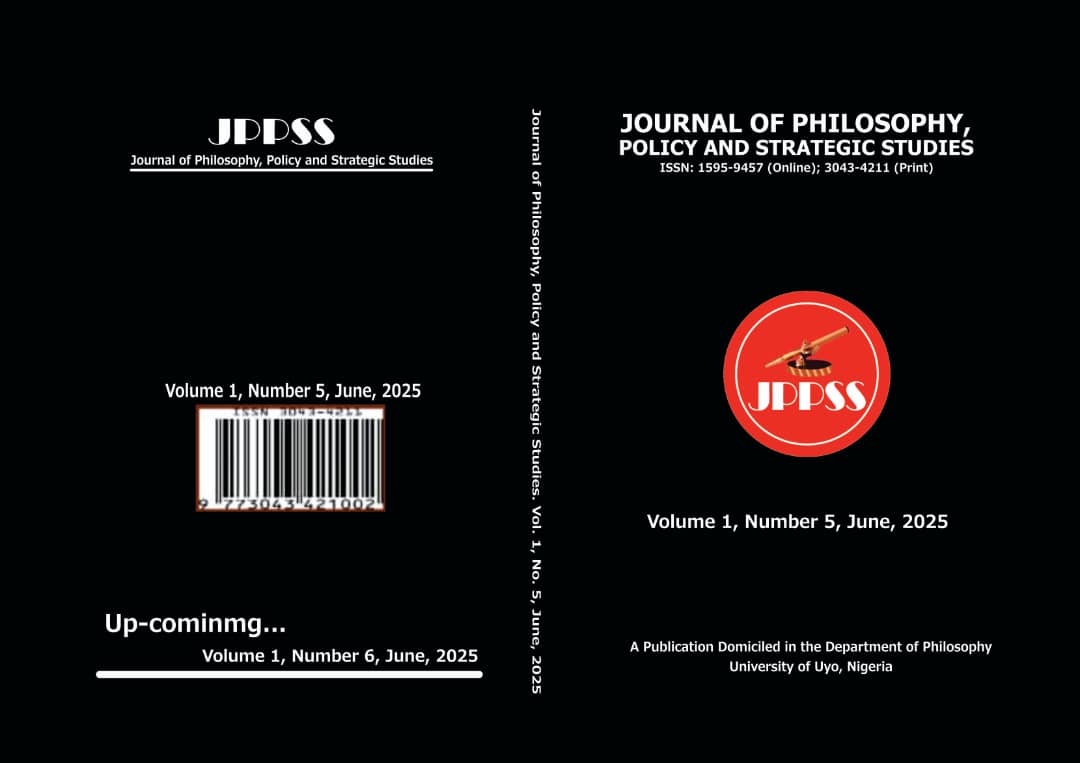COUNTER-TERRORISM STRATEGIES IN THE NORTH EAST, NIGERIA: AN EVALUATION OF MUHAMMADU BUHARI’S ADMINISTRATION
Azeez Olawale Badmus 1
Samuel Oroghenemudiake Ukutegbe 2
Ayegbeni Obi Isaac 3
Janet Tivere Otobo 4
Department of Political Science, Tai Solarin University of Education, Ijagun, Ogun State, Nigeria 1
Department of Educational Management, University of Ibadan, Ibadan, Oyo State, Nigeria 2
Department of Educational Management, Tai Solarin University of Education, Ijagun, Ogun, Nigeria3
Department of Academic Service, Ethiope West Local Education Authority, Oghara, Delta State 4
Corresponding Email: samukutegbe@gmail.com 2
Abstract
Terrorism is one of the major global security threats that has become a frightening phenomenon and issue of concern to the Nigerian government and international community. The menace is pervasive and its devastating effects are felt all over the world with no nation being immune from the acts of terrorism. In the last decades, the activities of Boko Haram in the North East, Nigeria has led to the loss of thousands of lives and mass displacement of over people. Hence, this study examined government counter-terrorism strategies in the North East with a focus on the civilian administration of Muhammadu Buhari between 2015 and 2023. The objective of this study is to assess the impact of counter-terrorism strategies adopted by the Buhari‘s regime in the North East, Nigeria. This study adopted descriptive research design. Two research questions and two hypotheses guided the study. Self-structured questionnaires and interviews were used to gather primary data while secondary data were gathered from the journals, newspapers, and online articles. This study is anchored on Galula’s counter-insurgency theory. A total of 450 copies of questionnaires were administered to the respondents whereas 400 copies were retrieved. The sample size of this study was determined using Taro Yamane formula. Data gathered from the respondents for the quantitative data was analysed using simple percentage and regression analysis utilising Statistical Package for Social Sciences (SPSS) version 26. The study concluded that the implementation of counter-terrorism strategies cannot be successful in Nigeria without addressing the issues of poverty, illiteracy, poor governance and unemployment in the affected geo-political zone. The researchers recommended that the Nigerian government should embark on massive socio-economic empowerment programmes to address the alarming rate of poverty and unemployment which often provide fodder for the extremist groups. It also recommended that the corrupt public office holders should be prosecuted and government at all levels must eschew corruption in the fight against terrorism and insecurity in Nigeria.
Keywords: Terrorism, Counter-Terrorism, Muhammadu Buhari’s Administration, North-East Nigeria, Insecurity.


